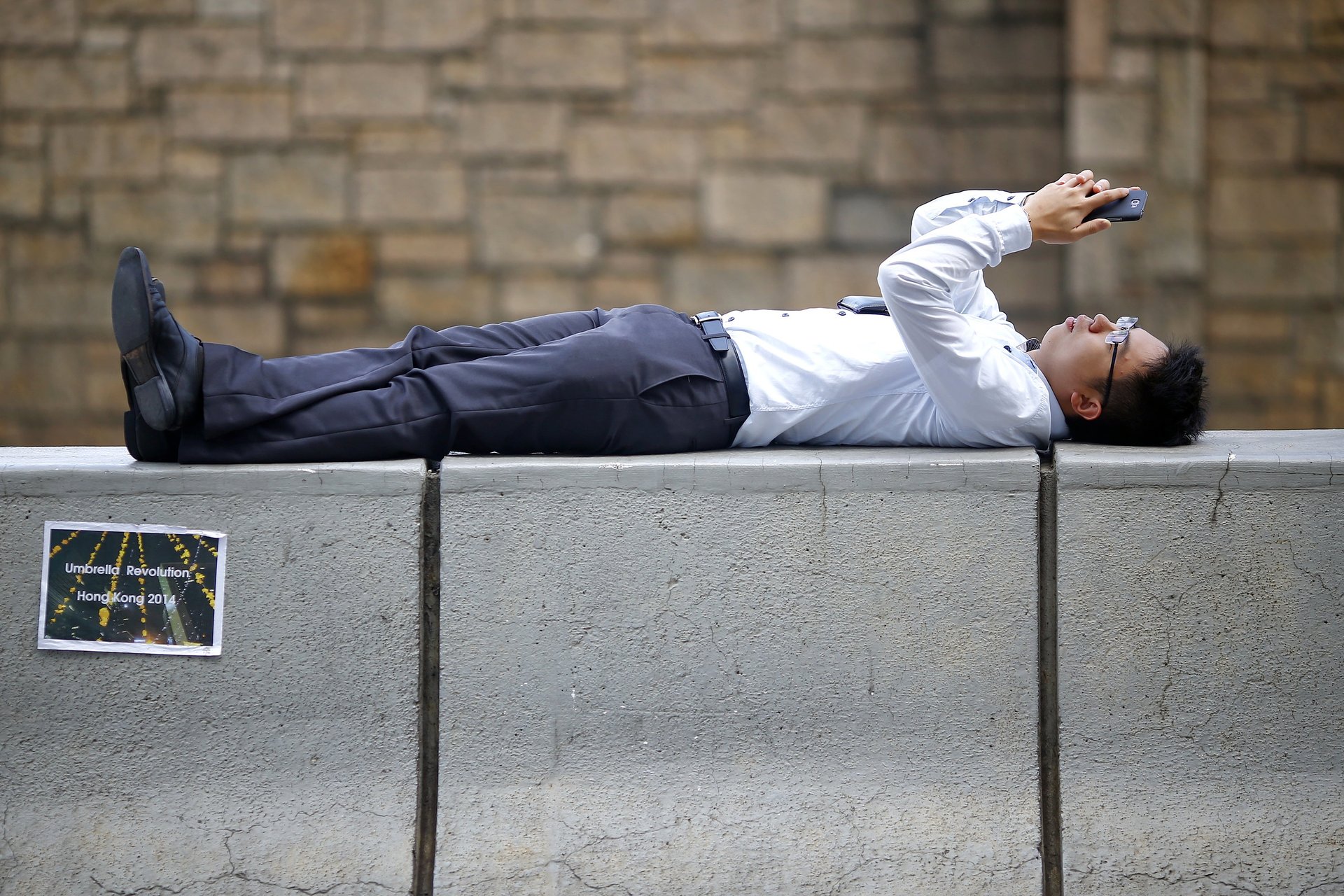Here’s how to stop looking at your phone every five seconds
We’re drowning in screens.


We’re drowning in screens.
Kids under the age of eight use screens for 2 hours a day. Preteens and teens (from ages eight to 18) an average of 7.5 hours. Adults stare into the light an average of eight and a half hours a day.
You know. We got problems.
According to the venture capital firm Kleiner Perkins Caufield & Byers, we tend to check our phones 150 times a day. In an international poll taken by Time magazine, one in four people check their phone “every 30 minutes, 1 in 5 people every 10 minutes.”
The distraction has consequences.
WYNC, America’s largest public radio station, has found that creativity is diminishing because the boredom in which we used to think of great ideas has been taken over by scrolling and tapping. Some of those services we use on our phones have become more addictive than alcohol or cigarettes, and make us feel worse about ourselves even when we use them. Not to mention, when we use them at night, the light from our screens can ruin our sleep.
But don’t be too hard on yourself, it’s difficult to tear our eyes away. Not only are the apps intentionally addictive, but the maintenance of our digital lives — what I call digital chores — demands our time. Software updates must be downloaded and installed (last year, Chrome had eight different version updates, while iTunes had nine), passwords reset (don’t forget to do it every 30 days), and notifications attended to (active Quora users get 150 to 500 a day).
On top of it all, although manufactured with micro-precision by specialized robots, those beautiful metal-accented buttons and cutting-edge industrial designs are terrible in the real world: even though people in UK and the US replace their smartphones every 22 months, on average, one in four iPhones still has a broken screen.
I say, let’s keep them hidden and safe. Stop taking your phone out every five minutes. There are psychological tricks. Keeping your phone in your bag instead of your pocket can reduce usage. Keeping it out of your bedroom can reduce temptation at night. Services like f.lux and Twilight can alter the color temperature to diminish a computer screen’s effect on your sleep.
But we can also make brilliant technology that doesn’t rely on screens.
We tend to focus on what we can see, but the hidden stuff – the processors, sensors, radios, and other internal components of our smartphones – have made exponential improvements that allow for a new era in computing: a screenless future. Instead of depending on the dated paradigm of a graphical user interface — fundamentally unchanged since the late 1970s — our powerful computers could do far more independently, and finally stop bothering us with requests and notifications.
Let your phones do the work without you. New technology can rescue today’s screen zombies: Web app Unroll.me can automatically compile promotional emails into a single digest to save you on email time. Dropbox’s Carousel can automatically backup your photos and remove them from your phone to save you space. TripIt automatically syncs your calendar with your flights so you don’t have to enter them manually.
But to start to see the real potential of a screenless world, grab IFTTT (and maybe even a sister app like LIFTTT). By creating triggers — for example, leaving the GPS location of your workplace — you can create recipes that take action automatically — text my wife that I’m on my way home — without ever taking your phone out of your pocket.
If you have Android, you can tweak further with apps like Trigger (which has over 1 million downloads) that can run a variety of tasks from a mix of triggers. It even allows NFC extensions, so you can use a radio connection instead of 20 taps to send a simple message.
While these hacker-type services are available for simple actions today, others are more complex systems that understand your needs and automatically start solving problems. Cameras installed in the rafters of NBA stadiums can now study player movements and alert team physicians when someone is likely hurt, injured or tired.
Smartphone screens have engrossed us in awful ways, but by utilizing the amazing tiny computers that they are, you can start your journey towards what I hope will eventually become a screenless world.
You can stop looking at your phone now.